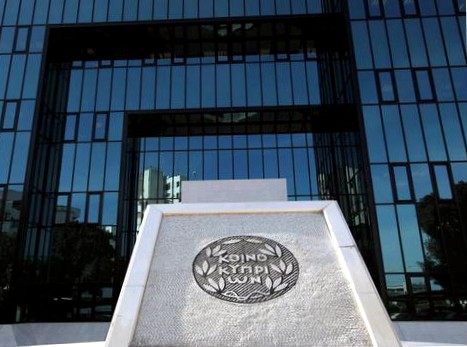Rich russians should also provide aid to cyprus

Russia, which had already granted cyprus a 2.5 billion euro loan, continued to keep a low profile on friday. The background to the demands are the large sums of billions that russian oligarchs in particular have parked in the accounts of the bloated banking sector in the eurozone country of cyprus.
Michael meister (CDU), vice chairman of the CDU/CSU parliamentary group, warned that a contribution from the banks’ shareholders and lenders should also be discussed: "I think it is legitimate to ask how the owners and lenders of a financial institution should participate in a bailout if the institution gets into difficulties."It is also a question of the extent to which cyprus itself will participate in the financing. He is not talking about savings deposits and not about loans from other banks, stressed meister.
The vice chairman of the union caucus called it "remarkable" that cyprus is at least the second largest foreign investor in russia. Such a financially strong country must of course ask itself why it needs help from the euro partners at all. The question is why cyprus should not be able to solve these problems on the basis of its own financial strength," says borst.
A debt cut would also affect russian creditors. The problem, however, is that at the same time the russian government is to be won over for an aid loan to cyprus.
The russian minister of economy andrej beloussow said in berlin that he knows the debate especially in the german parliament. The russian government is also examining the question very seriously: "the passion in this is a lesser one," beloussov added, though. Cyprus had asked russia for a new loan of five billion euros. Moscow recently warned that it would also ask investors in cypriot banks to pay up.
According to reports from "suddeutscher zeitung" and "handelsblatt", it is being examined how a restructuring contribution from private account holders and bank creditors could look like. Higher taxes on corporate profits, capital gains, villas and real estate, as well as the introduction of a wealth tax, are under discussion, according to "negotiating circles". Consideration is also being given to converting claims by domestic and foreign lenders against banks into equity interests in the institutions.
A spokesman for the federal ministry of finance confirmed that the elections in cyprus had to be waited for first. Then the troika of the international monetary fund (IMF), the EU commission and the european central bank (ECB) were able to talk to the new government in nicosia relatively quickly.
Cyprus had already applied for assistance last summer. Mediterranean country needs up to 17.5 billion euros. The money is to be used primarily to restructure the ailing financial sector. In the case of an aid loan, however, the national debt – measured in terms of economic output – climbed to an unsustainably high level. Therefore, ways are being sought to avoid this.
According to a newspaper report, the island state needs less help for its ailing banks than previously assumed. Between 5.98 billion and 8.86 billion euros were needed, reports the liberal cypriot newspaper "philefetheros" (friday), citing the investment company pimco, which had been examining the books of the financial institutions for months. The same figures had already been quoted by the "frankfurter allgemeine zeitung" last week.
Accusations have long persisted that cyprus attracts black money with low corporate taxes and lax financial supervision. Cyprus denies this. The black-yellow coalition also has misgivings about aid to cyprus. A majority in the bundestag for an aid package is uncertain due to criticism from the opposition as well.